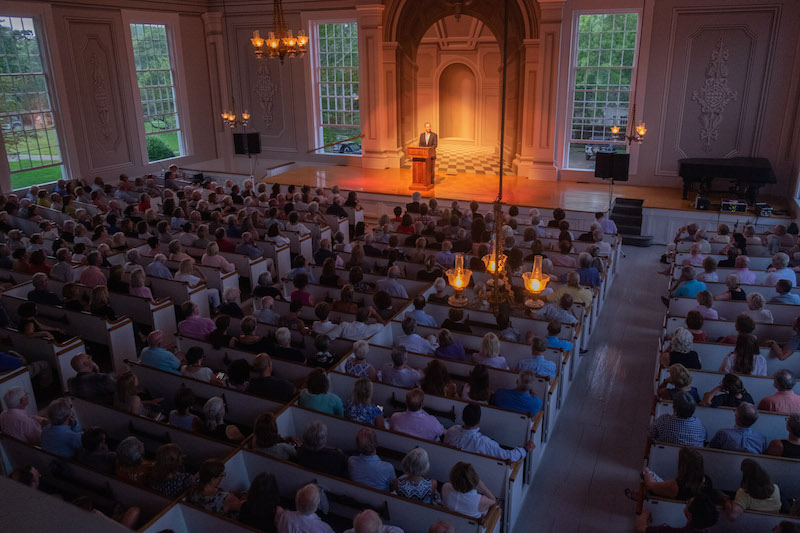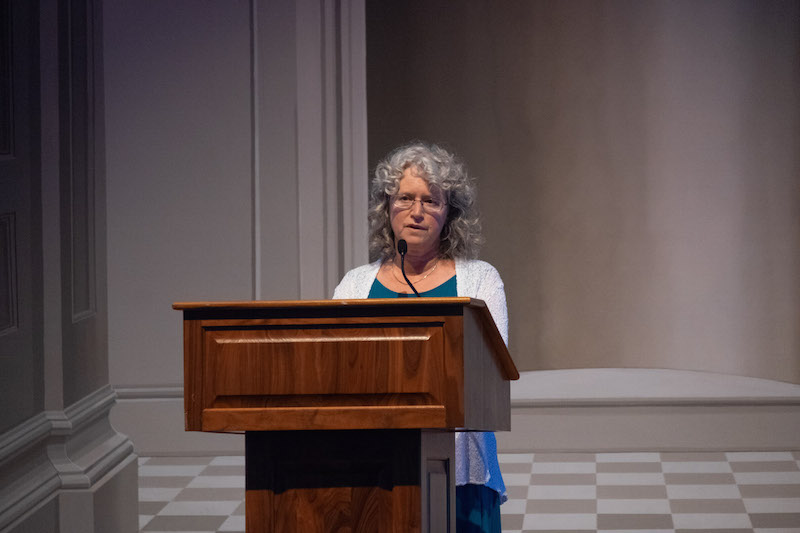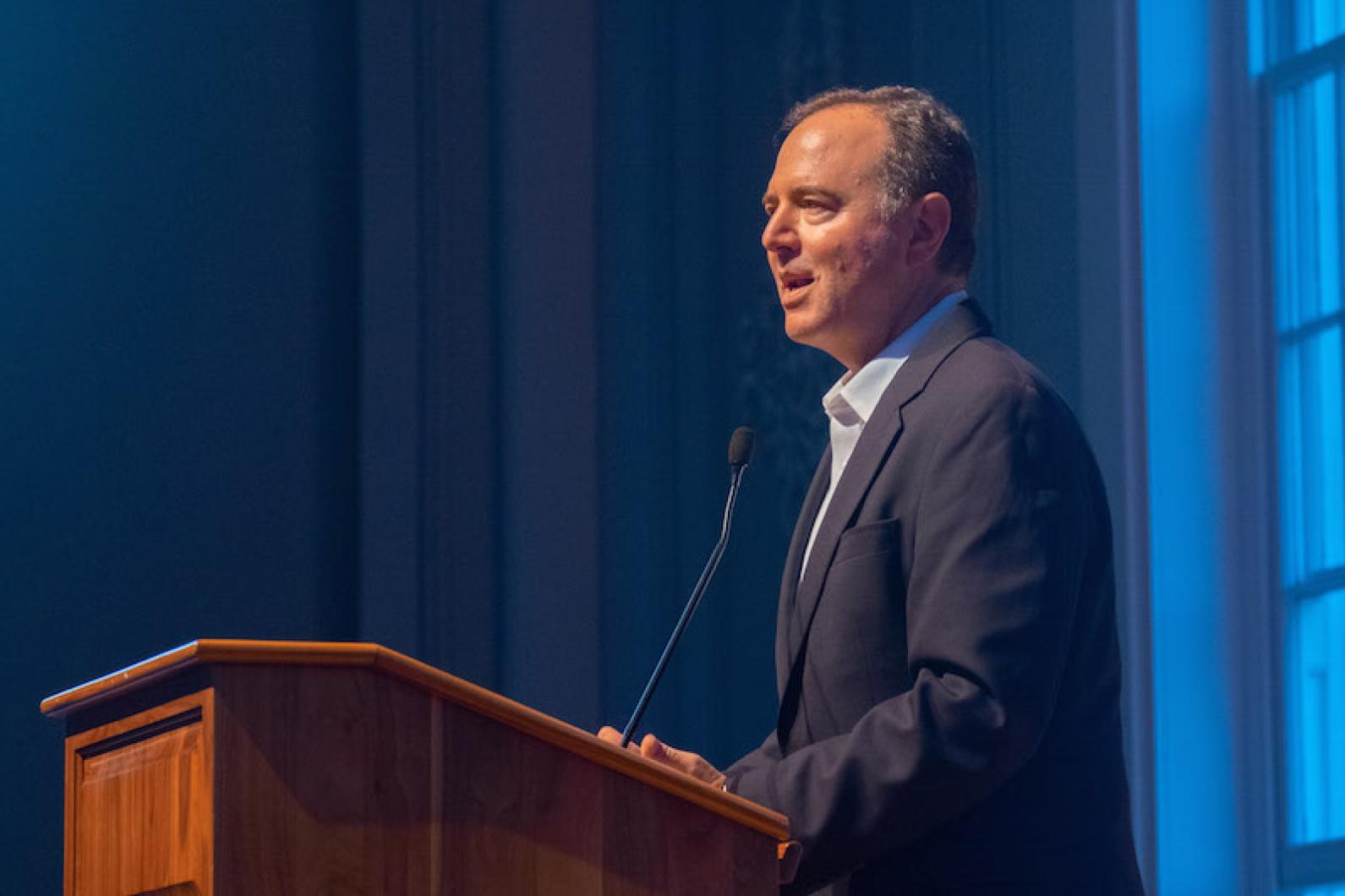Congressman Adam Schiff, chairman of the House Intelligence Committee, filled the pews of the Old Whaling Church Thursday evening as he spoke about the state of democracy in the United States and around the world. It was an appropriate place to discuss the subject. Edgartonians have gathered in the stately, white church every year since 1981 for annual town meetings, debating town issues and declaring aye or nay in unison with their neighbors.
But the California congressman’s portrait of the current state of affairs was far different from those displays of New England democracy: foreign nations interfering in American elections through hacked emails and social media campaigns, an online media environment that is splintered and divisive, disenfranchisement of American voters, and a President who seems comfortable in the company of authoritarian leaders.
Mr. Schiff’s talk was part of the Summer Institute speaker series, organized by Dr. Bruce Eckman. Other forums this summer have included Adam Gopnik of the New Yorker and Harvard political scientist Steven Levitsky.
Thursday night, Rabbi Caryn Broitman opened the event with a moment of silence for those killed in recent mass shootings.
In 2016, as the ranking Democrat on the House Intelligence Committee, Mr. Schiff was among the first people in the country to become aware that the election was the subject of attempted foreign influence.

“I was watching, from three floors below the capitol as intelligence reports were coming in, a foreign hostile power interfering in our election,” Mr. Schiff said. “We were watching in real time as documents that had been stolen by Russian intelligence services from the Clinton campaign, from the DNC, from the DCCC, were being slowly dripped into the American political campaign.”
A statement about the interference from Mr. Schiff and California senator Dianne Feinstein went out in September 2016 without the endorsement of the intelligence community or the Obama administration. Amid news of the Access Hollywood tapes and the Podesta emails, it received little media attention.
“I think part of the problem was contributed to by the press coverage of the events, which poured over every salacious and a lot of not salacious details of what was in the stolen Clinton emails, but gave scarce attention to why they had those emails to begin with,” Mr. Schiff said. “That this was the way a foreign power was trying to influence our outcome.”
Mr. Schiff said Russian interference—and the lack of response from the United States—has threatened much more than just the integrity of a single election.
“We were not alone at all in Russian interference,” he said. “This wasn’t just an attack on our democracy. It was an attack on all democracies.”

He pointed to the rise of autocratic leaders around the world: Vladimir Putin in Russia, Recep Tayyip Erdoğan in Turkey, Abdel Fattah el-Sisi in Egypt, Rodrigo Duterte in the Philippines and Jair Bolsonaro in Brazil.
“We’re in a new idealogical struggle that is not communism versus capitalism, but it is authoritarianism versus representative democracy,” he said.
The audience stood and applauded at the beginning and end of the talk. One audience member asked about the possibility of impeaching the president, given that his lawyer Michael Cohen had been charged with violation of campaign finance laws. Mr. Schiff said it is a question he and other house Democrats are not taking lightly, especially because in the senate trial that would follow, the president would likely be acquitted.
“It’s the most powerful form of censure we have,” he said. “I’m also concerned about the message that sends, to have an adjudication that this is not impeachable conduct.”
He broadened the conversation to talk about what the idea of America means around the world: democracy, human rights, acceptance. He said those ideas are in peril.
“Around the world, people are wondering whether America is still the same country they thought it was,” he said. “If we lose that . . . It’s a terrible tragedy for us. It’s a bigger tragedy for the rest of the world.”
Visit mvsummerinstitute.org






Comments
Comment policy »